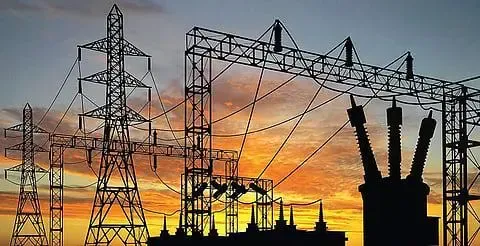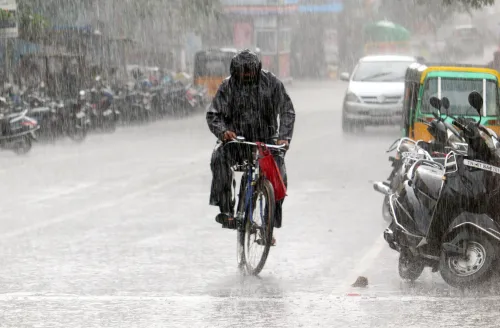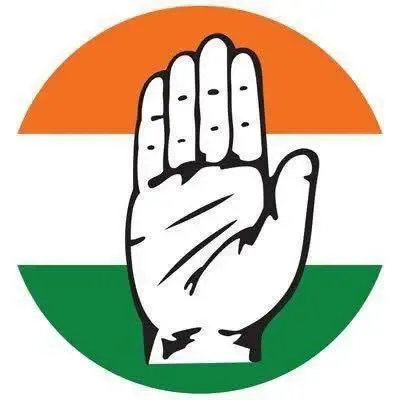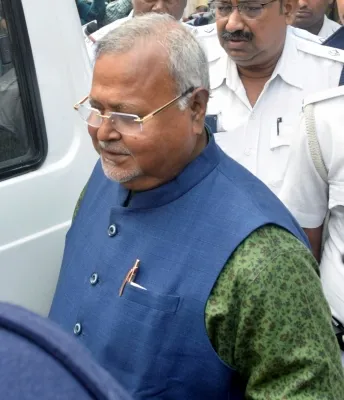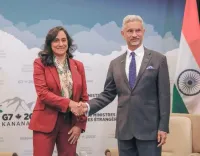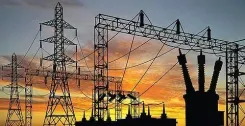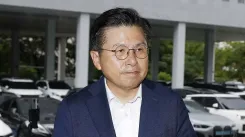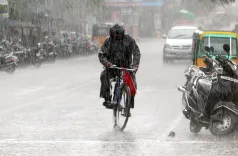Is ONOE More Than a Slogan for a Robust Democracy?
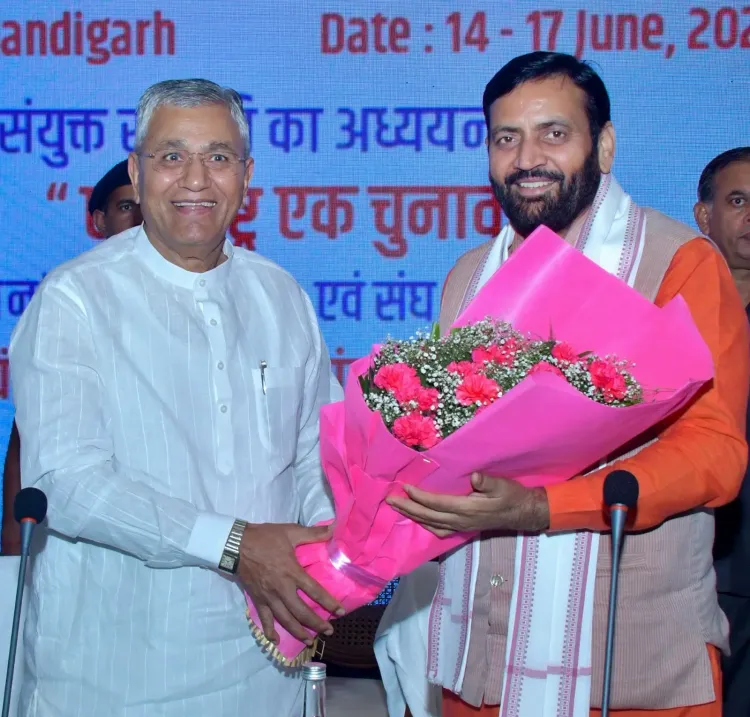
Synopsis
Key Takeaways
- ONOE is a strategic approach to improve democratic efficiency.
- It aims to reduce election-related expenditures significantly.
- Public participation is expected to increase with simultaneous elections.
- Frequent elections hinder ongoing development efforts.
- Consideration of socio-cultural factors can enhance voter turnout.
Chandigarh, June 16 (NationPress) Haryana Chief Minister Nayab Singh Saini stated on Monday that ‘One Nation, One Election’ (ONOE) is a crucial component of Prime Minister Narendra Modi’s visionary initiative of “Ek Bharat, Shreshtha Bharat”.
“This is not merely a slogan; it represents a national strategy aimed at fostering a strong and cohesive democracy. The Haryana government offers its in-principle backing to this initiative, which, if effectively executed, will provide extensive benefits for the nation,” remarked CM Saini.
The Chief Minister made these comments during a gathering of the Joint Parliamentary Committee in New Chandigarh, where the committee is on a study mission concerning the Constitution (129th Amendment) Bill, 2024, and the Union Territory Act (Amendment) Bill, 2024. Committee Chairman P.P. Chaudhary and various Members of Parliament were also in attendance.
According to CM Saini, the execution of ‘One Nation, One Election’ would introduce essential reforms to the democratic framework. He noted that ongoing elections impede developmental initiatives as the administrative apparatus is continually engaged in the electoral process, which directly affects the public.
Using Haryana as a case study, he pointed out that the state has experienced three significant elections in the last year: the Lok Sabha elections from March to June 2024, the Assembly elections from August to October, and the Municipal elections from February to March 2025. He emphasized that the enforcement of the Model Code of Conduct during elections disrupted developmental progress, as the administration was engrossed in election responsibilities, causing inconvenience to the public. Furthermore, the costs associated with conducting elections are exceedingly high, he added.
Saini asserted that ‘One Nation, One Election’ would conserve resources and echo the public's desire for simultaneous elections to prevent the squandering of time and money. “This approach would also enhance public engagement in the democratic process. Hence, it is vital for everyone to rally behind this initiative,” he urged.
He suggested that when determining election dates, socio-cultural considerations such as agricultural cycles, festivals, wedding seasons, and holidays should be taken into account to maximize voter turnout. He mentioned that frequent elections diminish voter enthusiasm, adversely affecting participation.
“If elections occur once every five years, it will rekindle voter enthusiasm, thereby fortifying democracy and boosting public involvement,” he concluded.

